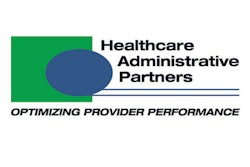
The U.S. Centers for Medicare and Medicaid Services (CMS) has released its proposed changes to the Medicare Physician Fee Schedule (MPFS) for 2022. The proposed rule is usually modified somewhat before it becomes the final rule for each year, but it gives an idea of the direction Medicare reimbursement is headed. The Medicare proposed rule contains payment policy decisions as well as changes to the Quality Payment Program (QPP).
 Sandy Coffta.
Sandy Coffta.Payment and valuation changes
Conversion factor
As it is currently proposed, the Medicare Physician Fee Schedule for 2022 will be calculated using a conversion factor (CF) of $33.5848 per relative value unit (RVU). This would be a reduction of 3.75% from the 2021 CF of $34.8931, following a 3.32% reduction from the 2020 CF of $36.0896. From 1998 to 2020, the CF had decreased only 1.6%, although that period included a range of +4.3% through 2001 to -7.4% through 2011. The proposed 2022 rate would bring the cumulative change to -8.5% from the 1998 rate.
| Estimated impact of proposed Medicare Physician Fee Schedule for 2022 | |
| CMS estimates | |
| Diagnostic radiology | -2% |
| Interventional radiology | -9% |
| Nuclear medicine | -2% |
| Radiation oncology and therapy centers | -5% |
The MPFS final rule will adjust the CF slightly based on more complete data that are available as the year closes. In addition, according to the American College of Radiology's ACR Preliminary Summary of Radiology Provisions in the 2022 MPFS Proposed Rule, the "Consolidated Appropriations Act, 2021 (P.L.116-260) included a 3.75% adjustment to the 2021 conversion factor which rolled back the payment cuts to radiologists from 10% to approximately 4%. If Congress does not intervene, the percentage decreases mentioned above could be greater for CY 2022 for many physicians including Interventional Radiology and Radiation Oncology."
Clinical decision support (CDS)
The penalty phase of the Appropriate Use Criteria (AUC) program has been delayed once again. CMS has proposed that it now will begin on the later of:
- January 1, 2023, or
- The first of the year following the year in which the COVID-19 Public Health Emergency (PHE) ends
Thus, if the PHE is declared to be over in either 2021 or 2022, the AUC/CDS penalty phase will begin January 1, 2023; however, if it extends into 2023, then the AUC/CDS penalty phase will begin in 2024. Currently the AUC/CDS program is fully operational in a testing phase whereby Medicare will indicate whether a claim complies with the requirements or not, but payment will not be denied.
Payment to physician assistants
The proposed rule includes a provision that would allow Medicare to make payments directly to physician assistants (PAs) for their professional services, or allow them to reassign such payments, aligning PAs with other midlevel providers such as nurse practitioners. Until the Medicare system was temporarily modified by the Consolidated Appropriations Act, 2021 for the pandemic, services provided by PAs could only be billed by their employer, which limited the ability of radiology practices to effectively use PAs in their practices.
Payment for PET scans
The decision to cover PET scans would be moved from a national determination to a local determination. CMS believes this would allow patients to have greater access to PET scans for nononcologic indications. At this point, it is unknown how this proposed change would affect reimbursement for PET scans.
Quality Payment Program (QPP) changes
The Merit-Based Incentive Payment System (MIPS) performance category weights and other benchmarks proposed for 2022 are shown in the following table:
| 2021 | 2022 Proposed | |
| Performance category weights | ||
| Quality | 40% | 30% |
| Cost | 20% | 30% |
| Promoting interoperability | 25% | 25% |
| Improvement activities | 15% | 15% |
| Performance threshold | 60 points | 75 points |
| Exceptional performance | 85 points | 89 points |
| Quality data completeness | 70% | 70% |
| Maximum payment adjustment | +/- 9% | +/- 9% |
CMS notes that the category weights are statutorily defined and are not proposals that are subject to change in the final rule. The final performance year for which the exceptional performance bonus will be available is 2022. The proposed rule notes that the data completeness threshold is expected to increase to 80% for the 2023 performance year.
The low-volume criteria will remain the same as for 2021. Clinicians will be exempt from MIPS in 2022 if they do one or more of the following:
- Have $90,000 or less in covered Medicare services
- Provide care to 200 or fewer Medicare beneficiaries
- Provide 200 or fewer covered services under the MPFS
As before, clinicians may opt in to MIPS participation.
Quality performance category
Since many radiologists do not receive a score in the cost category, the cost category weight is often redistributed to quality. In such cases, quality will represent at least 60% of the score for many radiologists and it could be even more for a hospital-based practice in which the promoting interoperability value is also redistributed. However, a new provision for "small practices" would give equal weight (50% each) to quality and improvement activities when both cost and promoting interoperability are reweighted to zero. A "small practice" is one in which 15 or fewer clinicians report under the same tax identification number (TIN).
CMS proposes a total of 195 quality measures for 2022, down from 206 in 2021, including the removal of 19 measures and the addition of five new measures. In addition, there could be "substantive" changes to 84 measures. The following measures are proposed for removal from the diagnostic radiology or radiation oncology measure set:
- #195, Stenosis Measurement in Carotid Imaging Reports
- #225, Reminder System for Screening Mammography
- #144, Medical and Radiation Oncology Plan of Care for Pain
CMS proposes to remove end-to-end electronic reporting and high-priority measure bonus points as well as the three-point floor for scoring measures, although a five-point floor would be established for the first two performance periods of new measures. With so few quality measures available to radiologists, the loss of these bonus points will make it even harder for them to achieve the exceptional performance threshold that will now be 89 points rather than 85 points in 2021.
The web interface option for groups, virtual groups, and other alternative payment model (APM) entities is proposed to be extended for 2022. Small practices that have submitted quality measure data via claims reporting will be allowed to continue to do so. However, those practices that wish their data to be considered as group participation will have to signal their intention by submitting either improvement activities, promoting interoperability measures, or MIPS clinical quality measures (CQMs) as a group. Otherwise, the quality measure data will be considered to be that of an individual submitter.
Improvement activities
Seven new improvement activities are proposed, two of which relate to behavior and mental health. The other activities are as follows:
- Implementation of a Personal Protective Equipment (PPE) Plan
- Implementation of a Laboratory Preparedness Plan
- Application of CDC's Training for Healthcare Providers on Lyme Disease
- Create and Implement an Anti-Racism Plan (High weight)
- Implement Food Insecurity and Nutrition Risk Identification and Treatment Protocols
These are all medium-weight activities except as noted. In addition, 15 activities (11 are health equity) are proposed to be modified and six are proposed to be removed. CMS is proposing to implement a policy whereby an improvement activity could be suspended during a performance year if there is reason to believe the activity raises a patient safety concern or becomes obsolete.
Cost and promoting interoperability performance categories
There are no proposals to change either the cost or promoting interoperability category significantly for 2022.
MIPS Value Pathways (MVPs)
CMS plans to delay the implementation of MVPs until the 2023 performance year. In the meantime, CMS will continue to refine their plans for transition to this new measurement system. The plan is to gradually transition to this program and eliminate the traditional MIPS program after the 2027 performance year, although this timeline is not yet officially proposed in the rule.
Conclusion
The MPFS final rule is typically issued early in December and at that time we will know which of these proposals have been finalized. As noted, the conversion factor will undoubtedly change somewhat, and it is always possible that congressional action will reduce the negative fee schedule impact again this coming year.
Sandy Coffta is the vice president of client services at Healthcare Administrative Partners.
The comments and observations expressed are those of the author and do not necessarily reflect the opinions of AuntMinnie.com.



















